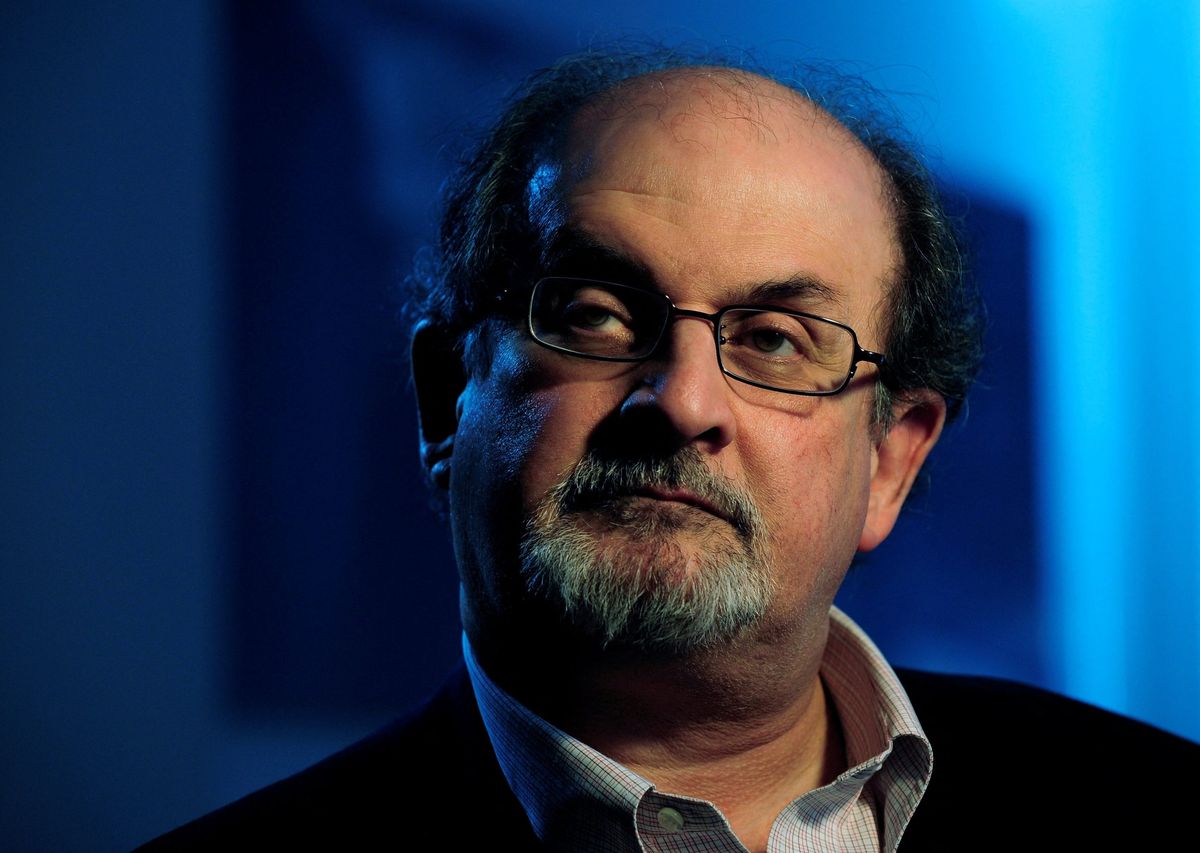Salman Rushdie is off a ventilator after a stabbing attack. Here’s what you need to know

A few minutes every morning is all you need.
Stay up to date on the world's Headlines and Human Stories. It's fun, it's factual, it's fluff-free.
Back in 1988, novelist Salman Rushdie released “The Satanic Verses,” in which two characters become an angel and a devil after a plane explosion. A series of dream sequences in the book includes a made-up narration of the life of the Islamic Prophet Muhammad. The novel got a lot of pushback from those who said the story was blasphemous to Islam. It caused such outrage that Iran’s then-leader Ayatollah Ruhollah Khomeini issued a fatwa, which is basically an Islamic legal ruling, putting a bounty of over US$3 million out on his head. Rushdie faced years of death threats after the novel’s publication and was put under strict police protection.
On Friday, Rushdie was attacked and stabbed multiple times by a guy named Hadi Matar at an event in New York, where Rushdie was giving a speech about exiled and persecuted writers and how the US provided a haven for them. He was initially in critical condition, having been stabbed at least 10 times in the face, neck and abdomen. He’s still alive, though, and was just taken off a ventilator on Sunday and can speak. Meanwhile, US-born Matar has pleaded not guilty in his court case and is currently in jail. Some Iranians and Muslims around the world responded positively online to news of the incident, but others see the stabbing as an attack on free speech and expression.
Key comments:
“I inform the proud Muslim people of the world that the author of the ‘Satanic Verses’ book, which is against Islam, the Prophet and the Koran, and all those involved in its publication who were aware of its content, are sentenced to death. I ask all the Muslims to execute them wherever they find them," said Ayatollah Khomeini on Tehran Radio in 1989.
“He did not feel that his book was especially critical of Islam, but, as he said on American television that morning, a religion whose leaders behaved in this way could probably use a little criticism," Rushdie wrote in “The Disappeared," a 2012 essay on himself and how the fatwa affected him.
“Divine vengeance has befallen Rushdie. Trump and Pompeo are next," wrote a newspaper under the control of Iran’s Supreme Leader after the attack.
“In no case is violence a response to words spoken or written by others in their exercise of the freedoms of opinion and expression," said UN Secretary-General Antonio Guterres.
“This was a targeted, unprovoked, pre-planned attack on Mr. Rushdie," said New York District Attorney Jason Schmidt.




Comments ()